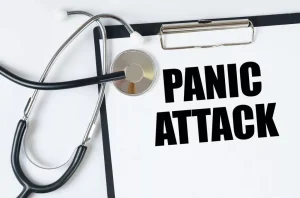
Someone who has an occasional drink or only has 1-2 drinks per outing may not seem like a problem, but the devolvement into alcoholism doesn’t have a time limit. Symptoms of a person’s alcoholism will continue to grow worse as they progress into the illness. Without early intervention, a person can end up developing a severe addiction to alcohol and need serious alcohol treatment. Alcohol alters how the brain functions, so after a while, you may notice changes in a person dealing with alcoholism. A person may become more distant and behave erratically as their use worsens, becoming more unpredictable and hard to control. How much a person’s behavior changes can vary based on how much they are using and their mental state.
Recovery

At the end of the day, the person with addiction has to be willing to accept help. A moderate drinker might pair a glass of wine with a meal, while a regular drinker uses alcohol to feel good in general. As increased drinking continues, you become more dependent on alcohol and are at risk of developing alcoholism. As the disease progresses to the middle stage, drinking continues to increase and dependency develops. Strong cravings for alcohol are typical at this stage, and drinking isn’t just for enjoyment anymore. Because the body has adapted to deal with an alcohol-rich environment, the alcoholic physically 5 stages of alcoholism needs it to avoid the painful symptoms of withdrawal.
- If you notice an increase in your drinking frequency, secretive drinking or memory lapses, it’s a sign that the situation might be escalating.
- If you haven’t received treatment for your alcoholism by this late stage, the long-term effects of prolonged use will become apparent.
- However, the risks of alcoholism significantly decrease the sooner an individual receives treatment.
- Alcohol use disorder, commonly referred to as alcoholism or alcohol addiction, does not develop suddenly.
How Do I Get My Loved One Help For Drug Addiction?
Dr. Hoffman is the Co-Founder and Chief Medical Officer of AddictionHelp.com and ensures the website’s medical content and messaging quality. They may also benefit from behavioral therapy, such as cognitive behavioral therapy (CBT) and motivational interviewing (MI), to help them change their attitudes and behaviors related to alcohol use. According to the 2022 National Survey on Drug Use and Health, 13.1 million people received substance use treatment in 2022.
No Cravings or Withdrawal Symptoms
Medical treatment may be necessary to detoxify the body of alcohol and to obtain a fresh start. Since many people with alcoholism endure psychological problems, individual or group therapy may help in overcoming addiction. You may become more depressed, more anxious, or =https://ecosoberhouse.com/ start losing sleep. You may start to feel sick from heavy drinking, but enjoy its effects too much to care.
Stage 1: Experimenting and Binge Drinking
However, you can still overcome your alcohol use disorder with the proper medical treatment and recovery plan. While you may not be drinking every day of the week, it is in this stage that many begin searching for excuses to drink, even if at home and alone. You drink to take the edge off a stressful day at work, or so you can sleep better at night. You drink to reward yourself for all the hard work you’ve been putting in on the job. Calls to our general hotline may be answered by private treatment providers.

You might experience occasional memory blackouts as a result of your drinking, and you might find yourself drinking on your own or in secret. Over time, you might rely on alcohol more and more in order to navigate the complexities of your daily life, signalling that you’ve developed a dependency on alcohol. In this initial phase, people might engage in social or binge drinking. It might appear harmless at first, but it’s at this stage where the foundation of an unhealthy relationship with alcohol might start. Drinking can sometimes become a way for people to relieve stress or escape challenges, which can soon turn into a problematic pattern. The journey from casual drinker to end-stage alcoholism is one that’s complex and unique to each person.

If you’re not certain how much you drink, consider using an app on your phone like Reframe. Use this app to count how many drinks you have and identify what tends to make you drink more. Outpatient programs are often part of aftercare programs once you complete an inpatient or PHP program.
Sustained Recovery
Boca Recovery Center is here to provide the best quality care in the treatment of drug and alcohol addiction. When this program is complete, people need a rehabilitation program. Some are offered on an inpatient basis (allowing you to move out of your home to get care), and others are available for outpatient treatment. These stages show how one goes from the beginning stages through to sustained recovery. It offers insight into drinking behavior as well as the intervention and treatment strategies that can help. Alcoholism can impact anyone, no matter what they are going through.

Men’s Rehab: Treatment Programs & Centers
- Call and speak to a treatment provider today and find a treatment program to guide you back to the person you want to be.
- Early intervention can stop your drinking from progressing into more severe stages.
- Perhaps your loved one has begun to show up late to work more frequently because the morning hangovers make it difficult to wake up on time.
- People can start their journey toward sobriety by recognizing the signs and symptoms of each stage, seeking timely help, and utilizing the available resources.
These physiological changes contribute to the increasing tolerance seen in early-stage alcoholics. Despite heavy alcohol consumption, they may show few signs of intoxication or ill effects from drinking, such as a hangover. And as tolerance builds, they’ll begin to drink more and more to achieve the same buzz or high they’re used to.

They may not know how much they can tolerate and drink so Substance abuse much that they become extremely drunk and may even pass out (lose consciousness). Yes, treatment for end-stage alcoholism may involve addressing any underlying health conditions, medical detoxification, inpatient rehabilitation, and long-term support from a therapist and support group. Treatment options for end-stage alcoholism may include hospice care, palliative care, or hospitalization to manage complications.
